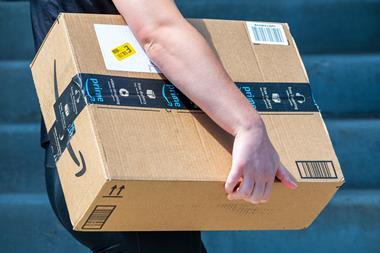When it comes to consumer preferences, it’s clear shoppers enjoy and expect a unified experience, Shopify’s Deann Evans examines why commerce needs to be more than just the store for success
Over the past half-decade, consumer behaviour has undergone a significant transformation. Today, roughly 60% of shopping experiences begin and end on separate surfaces – reflective of the sheer volume of choice and channels available.
According to our research, a hybrid approach to shopping remains popular, with 59% of UK consumers buying small things online but going into stores for larger purchases.
Though 68% say having a physical presence continues to be important, almost double plan to do the bulk of their spending online (33%) compared to in-store (17%).
It is therefore clear that commerce must be unified across online and in-store for success. Below, I explore three strategies to make this a reality.
1. Prioritise customer experience
With consumers shopping anywhere and everywhere, a consistent customer experience is crucial. Take social selling for example: over half (59%) of 18-24 year-olds say they’d buy on Instagram, and even more on TikTok (62%). It proves that commerce needs to extend beyond the physical and digital assets a retailer has direct control over, to all the channels that consumers engage with.
Furthermore, purchasing decisions are no longer just about a product.
Our research found that shipping costs are one of the top three reasons consumers are put off making a purchase (38%), followed by a lack of discounts and delivery taking longer than expected (both 26%).
This indicates just how broad consumer expectations have become when it comes to the shopping experience, and it is up to retailers to adapt their approach to continue meeting – and exceeding – them.
2. Optimise tech stacks
Key to delivering a consistent experience is the technology that enables retailers to gain a singular view of the customer – and it’s a solution shoppers want too.
Almost half (47%) said they expect brands to offer a tech-enabled shopping experience, from price comparison systems to real-time tracking. There is also a desire among consumers to bring AI into the experience, with the majority (55%) in the UK believing it will make at least one aspect of shopping easier.
But simply implementing them ad-hoc is not the answer.
It must be strategically guided to develop solutions that will truly make a difference. The team at NEOM Wellbeing, for example, have taken steps to unify the customer experience. Through a combination of online solutions and integrating complimentary point-of-sale (POS) solutions in-store, they have become a more effective and fruitful business, increasing orders by 10% in the process.
3. Utilise unified commerce
Most retailers are already convinced of the need to have one platform for all sales channels, but where previously this was known as ‘omnichannel’, there is an important distinction between this (focusing on creating consistency on the front end of your business) and unified commerce (unifying the back end systems and bringing all data into a single centralised platform).
This evolution helps retailers to unlock better scale, greater efficiencies and optimised operations. It also addresses one of the key challenges of omnichannel commerce – namely, reconciling incomplete, conflicting or duplicated customer data across multiple systems.
Jeweller Astrid & Miyu took a unified commerce mindset to ensure a seamless experience no matter how the customer connected with them.
This has led to 40% higher lifetime value repurchasing customers who shop omnichannel versus online only, demonstrating just how effective unified commerce can be in optimising the customer experience and creating a truly valuable brand.
Unified commerce is without doubt the key ingredient to success in 2025. In a climate of growing competition and evolving consumer demands, retailers must focus their efforts and investments on harnessing unified commerce as the strategy that will fuel their future growth.

Deann Evans is the managing director, EMEA at Shopify




























